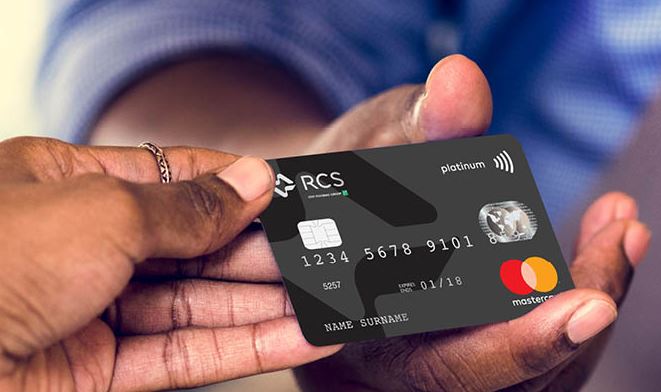Credit card installment plans, often marketed as a convenient way to manage large purchases, have become increasingly popular in many countries. These plans allow cardholders to spread the cost of purchases over several months, often with the promise of lower interest rates.
However, while they may seem attractive at first glance, these plans can often lead to financial difficulties and increased debt. This comprehensive guide explores the various aspects of credit card installment plans and provides strategies for avoiding them to maintain better financial health.

What are Credit Card Installment Plans?
Credit card installment plans are a feature offered by many credit card issuers that allow cardholders to convert specific purchases or their entire balance into fixed monthly payments over a set period. These plans typically range from 3 to 24 months and may come with their own interest rates and terms, which can differ from the card’s standard rates.
While these plans might appear to offer more manageable payments, they often extend the debt repayment period and can result in paying more interest over time. Understanding the true cost of these plans is crucial for making informed financial decisions.
The Allure and Pitfalls of Installment Plans
Why They Seem Attractive:
- Lower monthly payments
- Potentially lower interest rates compared to standard credit card rates
- Fixed repayment schedule
- Ability to make large purchases immediately
Hidden Dangers:
- Extended debt repayment period
- Potential for higher total interest paid over time
- Risk of accumulating multiple installment plans
- False sense of affordability for unnecessary purchases
Strategies for Avoiding Credit Card Installment Plans
1. Budgeting and Saving
Implementing a robust budgeting strategy is crucial for avoiding the need for installment plans. This involves:
- Tracking all income and expenses
- Identifying areas where spending can be reduced
- Setting aside money each month for planned large purchases
- Creating an emergency fund to cover unexpected expenses
2. Practicing Delayed Gratification – Credit card installment plans
Resisting the urge to make immediate large purchases can significantly reduce reliance on credit:
- Evaluate whether a purchase is a need or a want
- Consider alternatives or less expensive options
- Wait for sales or promotions for non-essential items
- Use the waiting period to save up for the purchase
3. Understanding the True Cost of Credit – Credit card installment plans
Educating yourself about how credit works can help make better financial decisions:
- Calculate the total cost of an item when using an installment plan
- Compare this to the cost of saving up and buying with cash
- Understand how interest compounds over time
- Be aware of any fees associated with installment plans
4. Utilizing Cash or Debit for Purchases
Using cash or debit cards can help limit spending to available funds:
- Set a cash budget for discretionary spending
- Use envelope budgeting system for different expense categories
- Consider a prepaid debit card for online purchases
5. Improving Overall Financial Health
Taking steps to improve your financial situation can reduce reliance on credit:
- Work on improving your credit score to qualify for better loan terms if needed
- Look for ways to increase income through side gigs or asking for a raise
- Reduce existing debt to free up more of your income
6. Exploring Alternatives for Large Purchases
When a large purchase is necessary, consider alternatives to it:
- Personal loans from banks or credit unions (often with lower interest rates)
- 0% APR credit card offers (if you can pay off the balance before the promotional period ends)
- Layaway programs for retail purchases
- Peer-to-peer lending platforms
The Impact of Avoiding Installment Plans on Personal Finance – Credit card installment plans
Steering clear of credit card installment plans can have several positive effects on your financial health:
- Reduced overall debt burden
- Improved credit utilization ratio, potentially boosting credit scores
- More disposable income due to fewer monthly obligations
- Greater financial flexibility and freedom
- Reduced stress and anxiety related to debt management
Dealing with Existing Installment Plans – Credit card installment plans
If you’re already enrolled in it:
- Avoid adding new purchases to installment plans
- Try to pay more than the minimum required payment each month
- Consider balance transfer options to cards with lower interest rates
- Look into debt consolidation options for multiple high-interest debts
The Broader Economic Perspective
While credit card installment plans can stimulate short-term consumer spending, they can also contribute to household debt levels and financial instability. By avoiding these plans and practicing responsible credit use, consumers can contribute to a more stable personal and national economic outlook.
Conclusion
Credit card installment plans, while seemingly convenient, often lead to extended periods of debt and higher overall costs. By implementing sound financial practices such as budgeting, saving, and understanding the true cost of credit, individuals can avoid the pitfalls of these plans. This approach not only leads to better personal financial health but also contributes to broader economic stability. Remember, the key to financial freedom often lies not in finding new ways to use credit, but in learning to live within or below your means.





